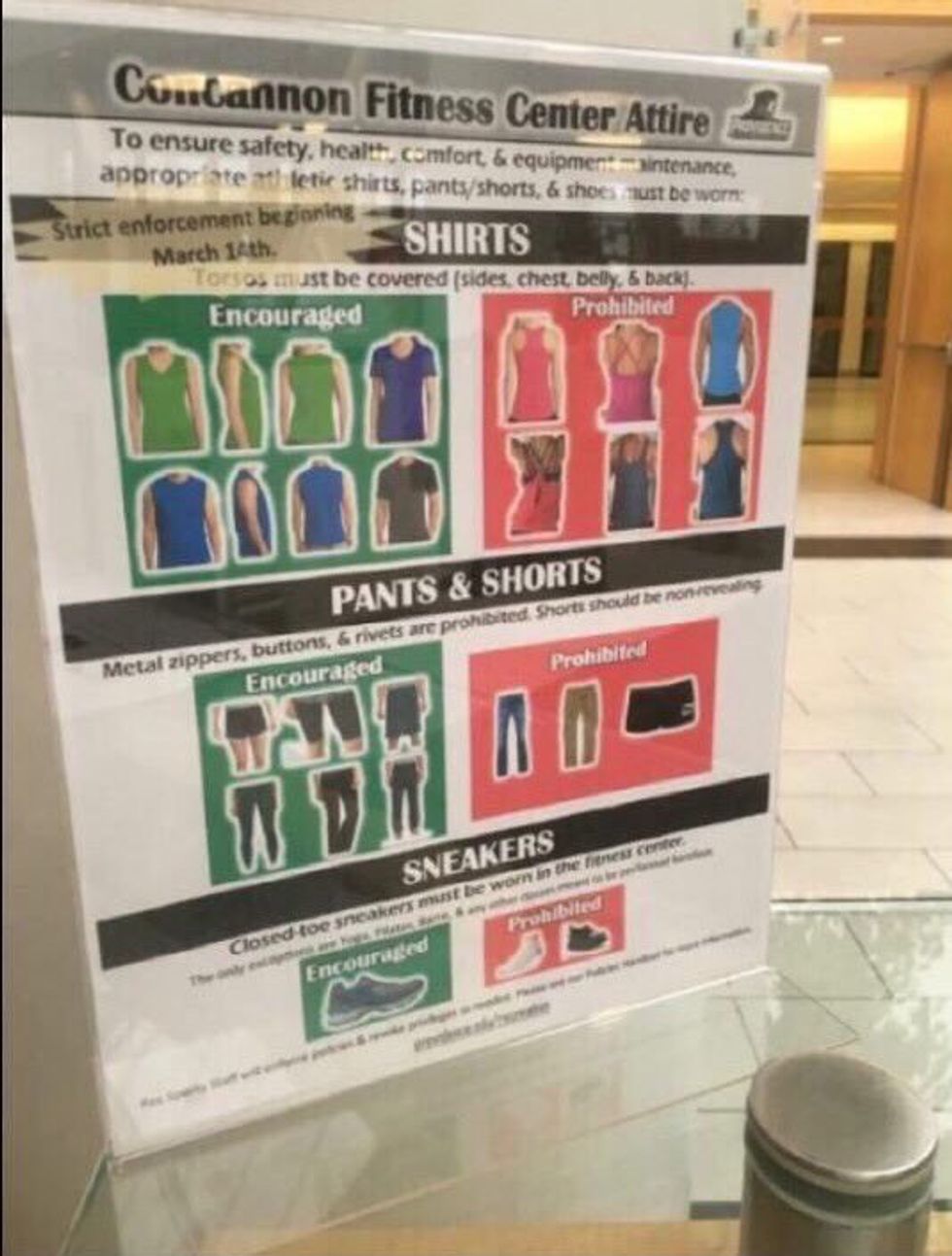This sign has been posted outside of the Concannon Fitness Center at Providence College. As of Monday, March 14, 2016, the fitness center will begin “strictly” enforcing a dress code. The new dress code states, "Torsos must be covered (sides, chest, belly, and back),” and "Metal zippers, buttons and rivets are prohibited. Shorts should be non-revealing."
The code is presented “to ensure safety, health, comfort and equipment maintenance” for all gym going members. The code prohibits all strappy and racerback tank tops for women, as well as men’s muscle tank tops that reveal their sides, though it does allow sleeveless tops for both genders.
This code had previously been implemented but rarely enforced. The resurfacing of the policy has left students surprised and confused, as many had not even known of the code’s existence because it was so infrequently enforced. It is unknown whether students were involved in the designing of the original policy, but students were not involved in the current change in enforcement. This has created a general feeling of frustration, particularly among female students who believe they are being subjected to a policy in which they should have had a voice because it presents a drastic change to common female gym attire. As a result, many female students feel as though this is reflective of sexism in the PC community.
Sexism is defined as “unfair treatment of people based on their sex; behavior, conditions or attitudes that foster stereotypes of social roles based on sex” (Merriam-Webster Online Dictionary). Sexism is anything perpetuates the norm of gender roles in society. Dress codes reflect sexism because they establish a discriminatory standard and allow these standards to become the norm.
As Providence College female students, we firmly believe that this new dress code reflects a sexist standard because it prohibits women’s fitness gear that is not revealing of any sexual part of the body. For example, racerback tank tops reveal shoulders, collar bone, and the upper back — body parts which are not sexual by nature but become sexual when policies insist that they be hidden. This further establishes the idea that our female bodies are shameful and something that we should actively cover up in order to appease other people.
We are not unreasonable in these beliefs because we understand and even concede that certain clothing is too revealing for the gym, such as backless tops that reveal much of the back and sports bra; however, we find it extremely unrealistic to expect women to refrain from wearing conservative tank tops that are designed for athletic use because the clothing interferes with “safety, health, comfort and equipment maintenance.” Asking women to avoid wearing tank tops is over sexualizing nonsexual body parts and setting a standard of what comfort should look like rather than feel like.
Furthermore, the dress code itself and its standards are extremely ambiguous. For example, what constitutes shorts as “non-revealing?” Adding pictures does not explain the necessity of the standards that the dress code requires. What about a women’s racerback tank top interferes with the “safety, health, comfort and equipment maintenance” of the gym and its members? As PC female students who frequent the gym, we think a campus discussion with students and a clarification of terms is necessary before expecting compliance with this dress code.
Student congress is currently looking into the matter and meeting to discuss options and proposed legislation; however, more involvement from the student population may very well be necessary in order to facilitate a more well-rounded policy that accommodates all members of the campus population.






















